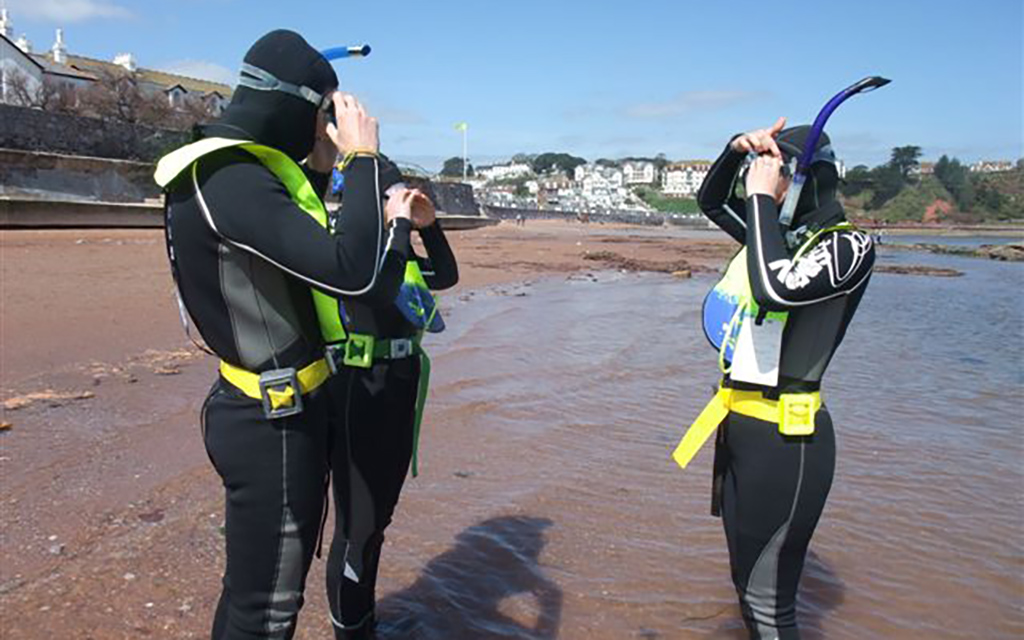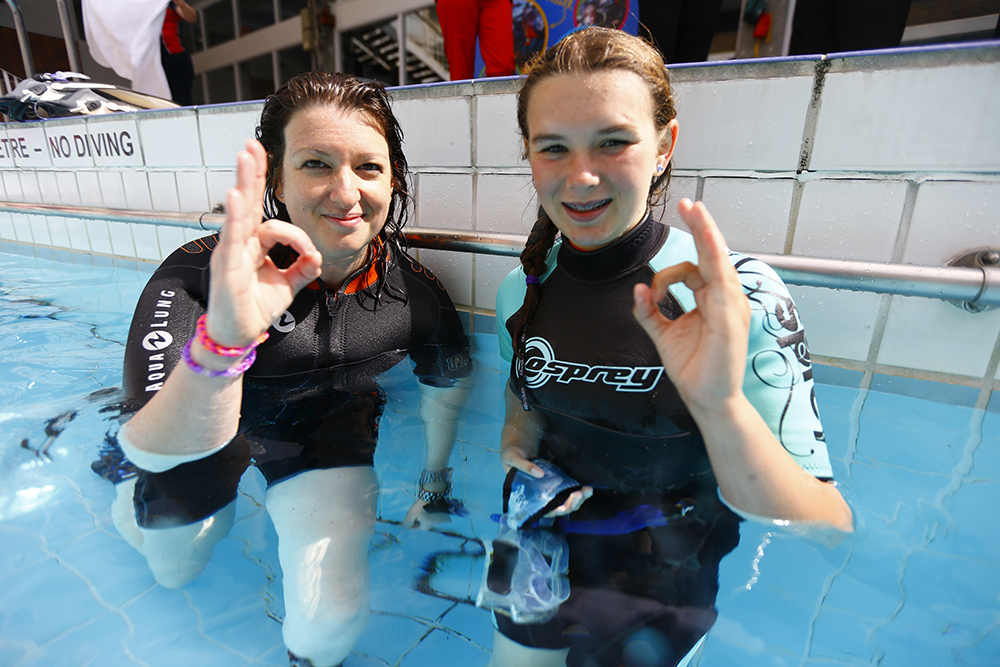
Photo credit: Marg Baldwin
Following on from his article on safety in cold water, Andy Torbet offers advice on site selection in the cool water season.
In January’s Torbet on the Tube, I highlighted some of the potential problems of snorkelling in cold water. It’s always best to understand the risks so we can try to mitigate or avoid them, or at least spot the warning signs. However, this was intended to prepare you to safely head forth out into winter, snorkel in hand, rather than dissuade you. Winter snorkelling can be rewarding, if you know where to go. I have some favourite sites but since BSAC’s membership is spread across the far reaches of Britain (and beyond) we’ll discuss more general location considerations you can apply to a site near you.
Rivers
In winter the increased rainfall creates powerful and dangerous conditions in our rivers. However, we are all aware of the fickle nature of British weather and the occasional cold, dry snap can freeze the smaller tributaries that feed major rivers and actually decrease the flow. This creates the same sedate, clear conditions you might experience in summer, albeit a good 15-20 degrees cooler. Alternatively, the more likely rise in water levels can allow snorkelling in shallow rivers and streams that would normally be too low to dive. A word of caution – knowing the state of the river, any downstream hazards and having a solid plan of where you get in and, more importantly, get out, along with ‘bail-out’ exit options is essential when snorkelling in a river.
Lakes
Lakes provide a safer option than rivers during or after heavy rain. However, like rivers, the increased run-off from the surrounding countryside will drag in sediment and decrease visibility. As with rivers, a spell of freezing weather will ice-up the feeder-streams, creating much clearer conditions. Larger, deeper lakes fluctuate less in temperature compared to small shallower ones. This makes the larger ones colder in summer but relatively warm in winter. The key word here is ‘relatively’.
When looking at seaside sites there are a number of considerations, the first of which is always safety
The Sea
The major advantage of the sea is that the seasonal temperature change tends to be less than either rivers or lakes – the coast of Britain never freezes over. When looking at seaside sites there are a number of considerations, the first of which is always safety. Sea conditions are important. Little changes in winter as we can get high winds, swell or strong tides through the year. However, I tend to avoid long or technical access routes in winter. After a snorkel in a cold sea, exiting into even a mild winter’s day I don’t want to spend hours in my wetsuit getting back to my dry clothes and car heater. Nor, with cold limbs and numb fingers, do I want to be trying to scale cliffs or negotiate boulder fields. Winter snorkelling is all about dealing with the colder conditions – let’s not make it even harder.
Waterfall Pools
This is an unusual option that needs some pretty specific conditions. But I have found locations in Wales where the waterfalls, or the river upstream, has frozen but the small lake at the bottom has not. This allows unique access to a snorkelling site that would otherwise be out of bounds due to the high energy water smashing down from above, even in summer.

The Great Indoors
Of course, there is the most civilised option of all – a nice, heated swimming pool. Because let’s face it – winter conditions can be difficult. Dealing with the issues of thermal regulation and protection is a year-round issue for divers in the UK, especially in winter. And although winter conditions can offer some unique opportunities, the reality is safe snorkelling days can be hard to come by in these lean months. Some may choose to hang up their fins during the worst of the weather. However, now would be a great time to make use of your club’s pool sessions to practise skills. Improve your duck dive; try out new equipment, do your rescue drills and generally just keep current. This way, you won’t be rusty when the weather improves and the waters warm up… a little… this is Britain after all.
Article ‘The winter wanderer’ by Andy Torbet first published in SCUBA magazine, Issue 141 March 2024. Images in this online version have been substituted from the original images in SCUBA magazine due to usage rights.



